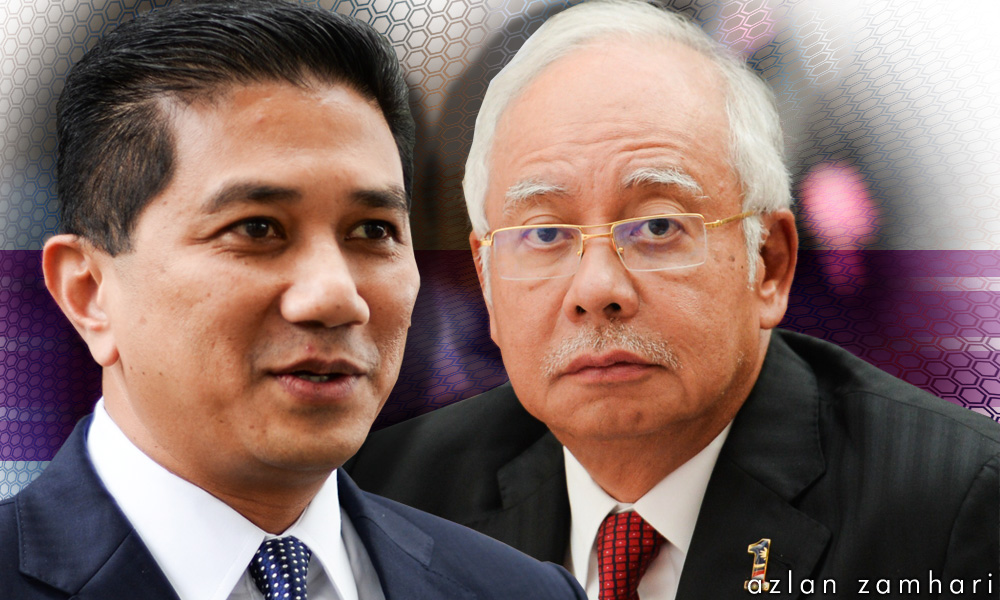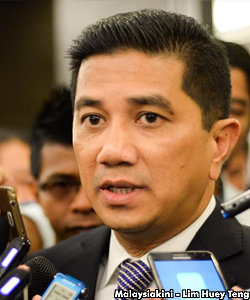
I was recently in a conversation with diplomats, journalists and an Umno office holder. Conversation naturally turned to when the general election would be held. The money, as it were, is on next year and there are compelling reasons to support this.
We are in a period of tremendous openness and fluidity, where any number of political scenarios are possible. This is why Najib Abdul Razak hasn’t called an election yet.
With the recent emergence of Bersatu led by former prime minister Dr Mahathir Mohamad, the Malay electorate is more split than it has ever been. Over the last 20 years, the number of opposition parties contesting Umno in Malay-majority seats has trebled as PAS was joined by PKR, and now Bersatu.
Of course, Umno can retain its seats if the opposition parties fail to unite and instead contend against both Umno and each other in multi-cornered fights. This is the bitter lesson of Malaysian elections that has driven opposition parties into a coalition, time and again.
Since 1998, PAS, DAP and PKR have been in and out of coalitions with one another, from Barisan Alternatif to Pakatan Rakyat and now Pakatan Harapan (sans PAS). Every time they united and presented a straight one-on-one fight against Barisan Nasional, they were able to increase their seats. Every time they fell apart, BN gained more seats.
We are now in a transitional situation. The opposition parties are in partial unity and Umno is wracked with crises of confidence and popularity and led by the most unpopular prime minister in living memory.
Najib fears the scenario where Umno will face straight fights – one-on-one – against an organised opposition formed out of PKR, DAP, Bersatu, Amanah, and PAS. This is the outcome that will guarantee the maximum loss for Umno, a “Malay Tsunami,” and pave the way for a change in federal government.
While Najib has made great progress in bringing PAS closer to Umno and away from the rest of the opposition, this process is far from complete and has been facing internal resistance within PAS. Najib needs to deliver a big win in order to remain in power. He is cautious, he is cunning, and he wants all the pieces to fall into place before he calls the general election.
There remains a chance for an electoral deal to be struck between at least PKR and PAS. This is in the self-interest of both parties as they are both competing for the Malay ground currently in Umno’s weakened grasp. If they can reach an electoral accommodation, it is possible that they could deny Umno 20 or more seats.
It is also expected that PKR will cede some seats it traditionally contests to Amanah and Bersatu. Negotiations between PKR and PAS could be extended to ensure that Amanah and Bersatu survive and prosper beyond the general election. DAP is the one opposition party that does not face the problem of multi-cornered contests (bar one or two seats) with Umno and PAS, precisely because it caters to a different community.
While some of PKR’s coalition members in Harapan are leery of an alliance with PAS, they must recognise that it is PKR’s prerogative to do so for mutual prosperity, just as it is certainly Bersatu's to negotiate in Kedah, for example. Both PKR and Bersatu can be members of Harapan while working out productive non-aggression pacts with PAS.
Emotions are still raw in the wake of the breakup of Pakatan Rakyat and it seems unlikely that PAS could comfortably rejoin its former comrades as a member of Harapan anytime soon. However, a coalition-plus arrangement, where the opposition parties contesting in Malay-majority seats work out an electoral arrangement, is certainly both possible and sensible.
This would firm up straight fights in Malay-majority seats and pave the way for throwing Umno out of the federal government. There is some 30 percent of the Malay vote that is firm with PAS. Dislodging Umno from the federal government will not happen without support from this bloc.
 It is precisely this electoral strength that PKR deputy president Azmin Ali (photo) has been trying to court because, with one-to-one fights conducted under the kinds of electoral irregularities and distortions raised by Bersih, there is a 60 percent chance that BN could lose its majority in Peninsular Malaysia. This would be a game-changing outcome.
It is precisely this electoral strength that PKR deputy president Azmin Ali (photo) has been trying to court because, with one-to-one fights conducted under the kinds of electoral irregularities and distortions raised by Bersih, there is a 60 percent chance that BN could lose its majority in Peninsular Malaysia. This would be a game-changing outcome.
Failure to work out an opposition deal guarantees that both PKR and PAS will lose seats. The additional Malay support brought by Bersatu would be cancelled out in the event of a three-cornered fight with PAS and Umno. Amanah and Bersatu could be wiped out as electoral forces. Umno will walk out the victor.
PKR experienced this in 2004 when it was reduced to a single seat. These lessons are hard learned and Azmin is well aware of them since he has been with the party from day one. It was a similar experience with the Asri Muda fiasco that made the late Tok Guru Nik Abdul Aziz Nik Mat such a hardliner against a PAS-Umno dalliance.
Many in the PAS grassroots remember this and leaders ignore it at their peril. Both PAS and PKR recovered ground once they entered into a coalition with each other and DAP. It is no surprise that pragmatic PAS leaders in Kedah, Kelantan and Selangor want to link up with the rest of the opposition.
We also need to recognise that under Azmin’s leadership, Selangor PAS has been a constructive part of a state government that has provided a slew of people-centred policies and welfare initiatives.
Three-cornered fights would carry a 75 percent chance of BN sweeping back a two-thirds majority in Parliament, which brings with it the power to amend the Federal Constitution and the psychological confidence to do so.
Najib has proven himself one of the most illiberal prime ministers we have ever had, and proudly so. He repealed the dreaded Internal Security Act only to restore it, with strengthened powers, and the National Security Council Act, the Security Offences (Special Measures) Act (Sosma), and the Prevention of Terrorism Act (Pota). I shudder to think what damage he would wreak on our nation’s foundational law with only a threadbare parliamentary opposition to counter him. Today’s youths will have to grow up under both authoritarianism and economic stagnation.
Politics is the art of the possible; it is also the art of compromise. Politics also involves putting the interest of the nation ahead of personal feelings.
There are sore feelings between former comrades that could impede unity, but everyone needs to take a lesson from the example of Anwar Ibrahim and Mahathir. If, after all that has happened, Anwar and Mahathir can shake hands and stand on the same leadership line-up once again, for the good of the country, then we should expect no less of any other politician. Leadership involves sacrifice, and personal feelings should be the first placed upon the altar.
Anyone who believes that victory is possible in a three-cornered fight with Umno is letting sentiment cloud proven experience and reliable polling. Harapan members must ask themselves: who is the number one enemy, Umno or PAS?
We need to put hurt feelings aside and look at things objectively: straight one-to-one fights offer the best way to defeat Umno and ensure it remains defeated. While Najib hesitates, negotiations should go on as long as possible and to the greatest possible extent.
Najib fears the perfect storm. Azmin’s duty to his party, his state and his nation is to bring the rain.
YIN SHAO LOONG is Strategic Communications Director of the Selangor Menteri Besar's Office. - Mkini



No comments:
Post a Comment
Note: Only a member of this blog may post a comment.